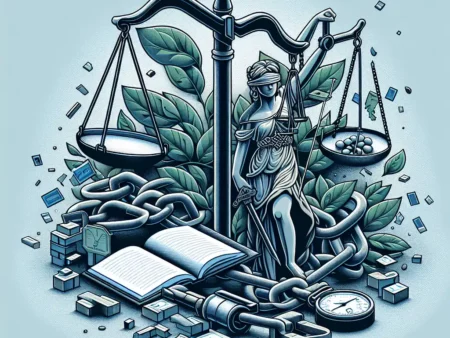Langkah dunia hadapi krisis pangan global: meningkatkan produksi pangan, mengurangi pemborosan, memperkuat keamanan pangan, dan mendorong inovasi pertanian.
Langkah Dunia Menghadapi Krisis Pangan Global
-
Table of Contents
- Introduction
- The Global Food Crisis
- Population Growth
- Climate Change
- Economic Factors
- Global Initiatives to Tackle the Crisis
- Sustainable Agriculture
- Investment in Research and Development
- Improving Infrastructure
- Steps Indonesia Can Take
- Promoting Sustainable Farming Practices
- Investing in Agricultural Research
- Enhancing Infrastructure
- Conclusion
Introduction

The world is currently facing a global food crisis, and Indonesia is not exempt from its effects. The increasing population, climate change, and economic factors have all contributed to this crisis. It is crucial for Indonesia to take proactive steps to address this issue and ensure food security for its people. In this article, we will explore the steps that the world is taking to tackle the global food crisis and how Indonesia can learn from these initiatives.
The Global Food Crisis
Population Growth
One of the primary drivers of the global food crisis is the rapid population growth. The world’s population is expected to reach 9.7 billion by 2050, putting immense pressure on the agricultural sector to produce enough food to feed everyone. Indonesia, with its population of over 270 million, is particularly vulnerable to this challenge.
Climate Change
Climate change is another significant factor contributing to the global food crisis. Rising temperatures, changing rainfall patterns, and extreme weather events have disrupted agricultural production worldwide. Indonesia, being an archipelago, is highly susceptible to the impacts of climate change, such as sea-level rise and increased frequency of droughts and floods. These changes directly affect crop yields and livestock production, further exacerbating the food crisis.
Economic Factors
Economic factors also play a crucial role in the global food crisis. Fluctuating food prices, income inequality, and poverty all contribute to food insecurity. As the world economy becomes more interconnected, any disruptions in the global market can have severe consequences for food availability and affordability. Indonesia, as a developing country, is particularly vulnerable to these economic shocks.
Global Initiatives to Tackle the Crisis
Sustainable Agriculture
One of the key strategies to address the global food crisis is promoting sustainable agriculture practices. This involves adopting techniques that minimize environmental impact, conserve natural resources, and enhance productivity. Many countries, including Indonesia, have started implementing sustainable farming methods such as organic farming, agroforestry, and precision agriculture. These practices not only ensure food security but also protect the environment for future generations.
Investment in Research and Development
Investing in research and development (R&D) is crucial to finding innovative solutions to the global food crisis. Governments and international organizations are allocating significant resources to fund agricultural research, develop new crop varieties, improve farming techniques, and enhance post-harvest management. Indonesia should prioritize R&D in agriculture to develop resilient crops, improve irrigation systems, and enhance pest and disease control measures.
Improving Infrastructure
Infrastructure development is essential for efficient food production and distribution. Upgrading rural roads, building storage facilities, and improving irrigation systems can significantly enhance agricultural productivity. Additionally, investing in transportation networks and cold chain facilities can reduce post-harvest losses and ensure that food reaches consumers in a timely manner. Indonesia needs to prioritize infrastructure development to overcome logistical challenges and improve food security.
Steps Indonesia Can Take
Promoting Sustainable Farming Practices
Indonesia should encourage farmers to adopt sustainable farming practices such as organic farming, agroforestry, and integrated pest management. Providing training, financial incentives, and access to resources can help farmers transition to these methods. The government should also promote the use of environmentally friendly fertilizers and pesticides to minimize the negative impact on ecosystems.
Investing in Agricultural Research
Indonesia should allocate more resources to agricultural research and development. Collaborating with international research institutions and universities can bring in expertise and knowledge to develop resilient crop varieties that can withstand climate change and pests. Additionally, research should focus on improving irrigation systems, soil fertility, and post-harvest management techniques to enhance productivity and reduce losses.
Enhancing Infrastructure
Improving rural infrastructure is crucial for Indonesia to overcome logistical challenges in the agricultural sector. The government should invest in building and maintaining rural roads, irrigation systems, and storage facilities. Additionally, developing transportation networks and cold chain facilities will ensure that perishable food items reach consumers without spoilage.
Conclusion
The global food crisis is a pressing issue that requires immediate attention. Indonesia, with its large population and vulnerability to climate change, must take proactive steps to ensure food security for its people. By promoting sustainable farming practices, investing in agricultural research, and enhancing infrastructure, Indonesia can mitigate the effects of the crisis. It is crucial for the government, farmers, and international organizations to work together to address this challenge and build a resilient and sustainable food system for the future.







